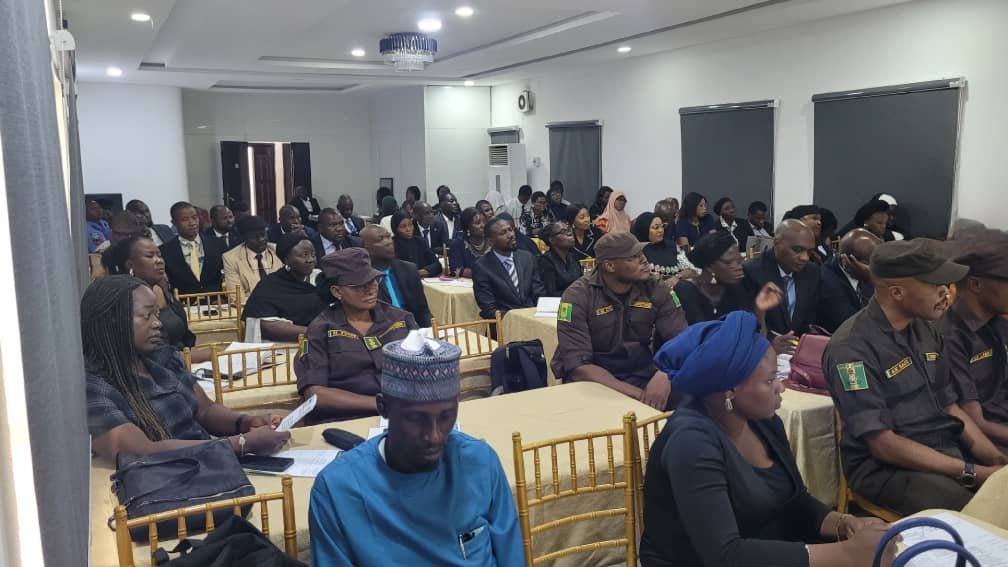The lack of a functional and effective implementation committee has been identified as one of the bottlenecks impeding the full operationalisation of the Administration of Criminal Justice Laws (ACJL) in Kwara State.
Professor Abdulqadir Ibrahim Abikan disclosed this in Ilọrin, Kwara State capital, during a workshop on the ACJL.
The event gathered key stakeholders from the justice sector to assess the realisation and impact of the laws in the state.
ACJA, which is crucial to Nigeria’s justice reform, was a focal point during the workshop’s training sessions and discussions.
- Gov. Sani settles 347 land disputes in Kaduna, provides 203 alternative plots to claimants
- How I handed over $15.8m cash to Suswam – bureau de change operator
Participants included representatives from the Ministry of Justice, Nigeria Police Force, Correctional Services, Department of State Services (DSS) and Legal Aid among others.
The programme was organised by LawHub with the support of the MacArthur Foundation and focuses on popularising and disseminating the ACJL in Kwara State.
Law Hub had successfully implemented the first phase of the project in six states namely Nasarawa, Kano, Akwa Ibom, Oyo, Enugu and Adamawa.
It also successfully implemented the second phase in Bauchi, Delta, Anambra and Kaduna states.
Prof Abikan who was one of the guest speakers at the event put the implementation rate of ACJL in the state at around 20% due to fragmented and uncoordinated efforts.
He said though robust and audacious, past efforts towards its full application in Kwara have been made individually without formal coordination.
Towards this end, the Prof of Law, University of Ilorin, observed that a proper structure is necessary to ensure that justice is served efficiently and fairly.
He therefore called on the Chief Judge of the state to take a proactive role in convening regular meetings of the monitoring committee which he said was pivotal to the workability of the laws in the state.
“The CJ needs to take the lead. The law has established the committee, but it is up to the chairman to call a meeting and start the work. Once the committee starts working, the justice system will function more efficiently.”
“Magistrates will visit police stations, reports will be made, and during meetings, stakeholders will discuss what has been done and what needs to be improved.
“We have not established the committee and magistrates have not been appointed. It won’t be coordinated if every magistrate just walks into police stations randomly,” he said, stressing the need for proper coordination between the judiciary and law enforcement agencies.”
Professor Abikan assured that if the law is fully implemented, the criminal justice system will improve significantly.
“If all these things are done, our criminal justice system will be near perfect, and those who intend to commit offenses will think twice because of the monitoring networks in place,” he said.
Abikan who countered the notion that ACJL was over-pampering criminal suspects added that Nigerians must not forget that accused persons remain innocent until proven otherwise.
He criticised the practice of detaining individuals for extended periods without trial and condemned the practice of handcuffing high profit suspects just to embarrass them.
While emphasising the role of ICT in speeding up justice delivery as contained in the ACJL, the guest speaker urged legal practitioners and non-governmental organisations to prioritise public orientation on its provisions.
In his remarks, the co-guest speaker, Jimoh Adebimpe Mumini (SAN) represented by the Head of the Public Law Department, University of Ilorin, Prof Abdulfatai Sambo, stressed the importance of coordination among justice sector stakeholders.
He cautioned that poor synergy among the stakeholders could lead to flawed prosecutions, miscarriages of justice and human rights violations.
Earlier in his opening remarks, the Executive Director of LawHub, Mr Osita Chukwuma, urged stakeholders to escalate the deliberations and allow it to cascade to the relevant quarters.
“It is important to state that undoubtedly, there will be challenges ahead, however, where the will is strong and commitment reassuring, there is a huge likelihood of overcoming these challenges.
“Law Hub is thus committed to supporting Kwara and other states in the federation to achieve remarkable landmark success stories”, he said, represented by the centre’s Programme Officer, Maryam Ibrahim.

 Join Daily Trust WhatsApp Community For Quick Access To News and Happenings Around You.
Join Daily Trust WhatsApp Community For Quick Access To News and Happenings Around You.


